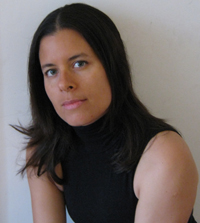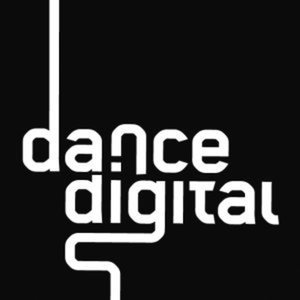 Tamara Ashley works as an artistic director, curator, academic, writer and choreographer. She is currently the Artistic Director of dancedigital and also directs the MA Dance Performance and Choreography programme at the University of Bedfordshire. As Artistic Director of dancedigital, she has led on projects such as Digital Futures in Dance and the recent dancedigital festival, with a particular focus on supporting artists in the development of their work.
Tamara Ashley works as an artistic director, curator, academic, writer and choreographer. She is currently the Artistic Director of dancedigital and also directs the MA Dance Performance and Choreography programme at the University of Bedfordshire. As Artistic Director of dancedigital, she has led on projects such as Digital Futures in Dance and the recent dancedigital festival, with a particular focus on supporting artists in the development of their work.
Tamara began her dance education in Hertfordshire as a member of the Herts Youth Dance Company in the early 1990s. Following that she undertook her undergraduate dance training at Roehampton Institute London and Goucher College, USA. With the support of a full scholarship she went on to earn an MFA in Choreography and PhD in Dance from Texas Woman’s University.
Where did it all begin?
Coincidentally I joined Hertfordshire youth dance company which is now taken care of by dancedigital! I went on to study at university which led to me studying in the ISA and establishing myself as a dance artist. I then moved into teaching dance and working on projects before becoming part of dancedigital which I’ve been leading for four years. We had a rocky, challenging period of funding cuts, structural reviews and renewal of our focus but now we are expanding.
What is a typical day like at dancedigital?
Wow! First I check in with the staff and producers and go through the agenda for the day. I then work through my emails and speak to the artists we are working with, such as helping them plan. I talk to teachers, funders, write funding applications, present the organisation to national bodies and above all try to advance digital dance. I am also mentoring on the Youth Dance England Young Creatives scheme in which I give advice as the participants look at their work in progress. My main role however is to represent our organisation in advising and mentoring younger artists.
What do you like most about dance?
Aside from the digital aspects I am also really interested in the health and wellness side of dance. I am also a yoga instructor and look closely at connecting with the body and connecting interactive projections with somatic experiences. I look at new experiences of embodiment, leading onto the 4D experience of the body with digital dance as a view into the future. It is important to develop and understand the body’s place within the world.
Explain the idea behind the newest dancedigital project…
The dancedigitall festival is to be presented at the University of Bedfordshire from 25-27 May, including presentations by Focus, Essex’s youth dance company. Focus is for 14-18 year old dancers and the company is directed by Robert Gentle, a digital dance development specialist. The main focus of the group is on the creative skills of the dancers. The festival will be a full weekend of talks, performances, installations and immersive dance, such as that with lights which are fed by movement.
dancedigital received funding from the Royal Opera House bridge which prompted further experimentation with new digital techniques, meaning the organisation is the first to do this. The support for arts and technology came early on, resulting in interactive and light based work, 3D work, partnering and a rich quality of movement with detailed movement vocabulary.
What is your greatest achievement to date?
At the moment it is seeing the work of the artists of dancedigital and their innovation and success. They have secured funding and touring commissions which makes me very proud. I would also say the technological focus of the youth dance company is also a great achievement, as it is an innovation in their field and a very special experience for young people.
What’s next for you?
We are looking at the future network of the schools we work with in Essex and Hertfordshire, as well as working on a new app. It will be a choreographic app for young people to encourage them to make movement for themselves and to inspire them. It will be aimed at primary school children as a movement project for them.

 dancedigital, in partnership with the University of Bedfordshire, is to present the dancedigital Festival from 25-27 April. dancedigital is one of the UK’s leading dance organisations based in Bedfordshire and Essex, renowned for leading the dance field in the development of technical innovations in choreography and dance. In April, to celebrate the latest achievements and best work of an outstanding group of dance practitioners, the organisation will stage its first digital dance festival at the University of Bedfordshire.
dancedigital, in partnership with the University of Bedfordshire, is to present the dancedigital Festival from 25-27 April. dancedigital is one of the UK’s leading dance organisations based in Bedfordshire and Essex, renowned for leading the dance field in the development of technical innovations in choreography and dance. In April, to celebrate the latest achievements and best work of an outstanding group of dance practitioners, the organisation will stage its first digital dance festival at the University of Bedfordshire.